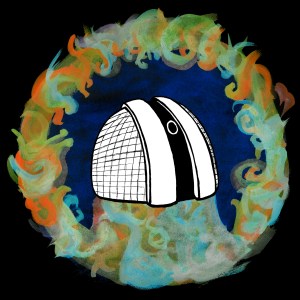
The Story Observatory is a place to investigate and imagine the world through stories. Humans have always been telling stories, to make sense of the world, our place in it, our purpose and death. Within stories we preserve facts, insights, life lessons, morals and other types of knowledge.
So what exactly do I mean by ‘stories’? Stories are fundamentally human and flow from the human experience. They are not ‘objective’ descriptions of the world. Instead, they help us understand what the world is like for us. For example, we can tell different stories about a volcano. We might see it as a friend, gifting us fruitful earth, or as an enemy which has to be pleased. Neither of these stories can be proven with facts and neither is necessarily more ‘true’ than the other. Yet we need stories like these, because otherwise we can’t make sense of people dying when the volcano erupts. If a community sees a volcano as a friend, it can explain and even accept the disaster by reasoning that, to be able to give, a volcano sometimes has to take. If the volcano is an enemy, that is the reason for the disaster. As Cashman and Cronin explain, “when such explanations are not available, psychological recovery from a disastrous event is hindered.” Humans find it difficult to move on when disaster and death seem senseless.
Sometimes stories are characterized as ‘merely’ myths or beliefs, lacking truth. However, there is no way to understand the world without stories. Even scientists need them. When neuroscientists describe the brain, some compare it to a computer and others to a forest. To comprehend something new and far removed from our usual experience, we use metaphors. We relate the incomprehensible thing to something we can comprehend, an element of our human world. When we use the metaphor of the computer, it makes us think of processes in the brain as automatic, inevitable and logically structured. When we use the metaphor of the forest, we are more inclined to see the brain as everchanging, growing and containing well-worn paths. There is no way to deal with facts (about the brain) without overarching stories which tell us what these facts mean.
Since stories are so essential, I think we should be more aware of them. We should investigate which stories we are actually telling about the world, since we are often not conscious of them. We should contemplate how useful these stories are and which alternatives are available. Sometimes stories fail. For example, in the West we have been telling stories about endless progress and growth for a long time, but economic crises and climate change force us to come up with alternatives.
The oracle deck
Currently I am working on an oracle deck which is full of these stories and metaphors. An oracle deck is a tool for divination and can help people gain insight in their life and problems. The deck consists of a number of cards with images. In a reading, one or a few cards are randomly drawn and then interpreted, to find answers to questions or other insights. While there are people who believe that the cards are selected by a divine force, you don’t need to believe this to be able to use them. Each card can be interpreted in many different ways and humans are very good at projecting their own life and struggles on images they see.
I believe that we can find wisdom in all parts of the world: in the past as well as the modern world, in the ordinary as well as the extraordinary, in nature, the ‘unnatural’ and the ‘supernatural’. This is why my images come from all these domains. I have complemented the images with short texts, in which I refer to many different stories. People around the world have collected a wealth of them, so when we are looking for ‘alternative’ stories, there is no need to start form scratch. Click here to see my oracle cards and virtually pull a card!